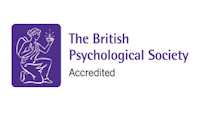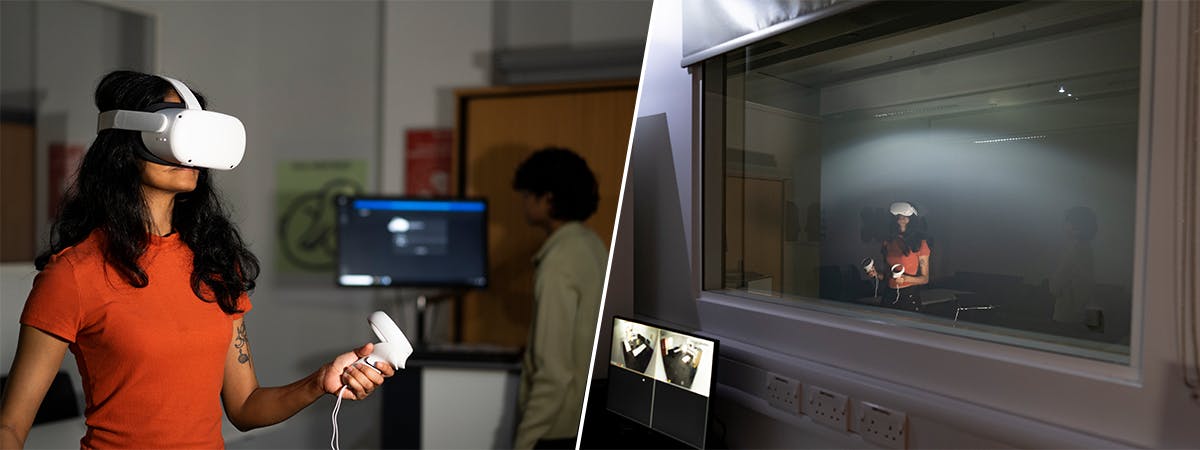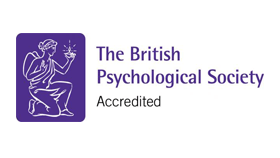
Health Psychology - MSc
Currently viewing course to start in 2024/25 Entry.
Our MSc Health Psychology course at Birmingham City University is accredited by the British Psychological Society (BPS) as Stage 1 of the professional training in Health Psychology and provides you with the essential step towards becoming a Chartered Health Psychologist....
- Level Postgraduate Taught
- Study mode Full Time/Part Time
- Location City Centre
- Award MSc
- Start date September 2024
- Fees View course fees
- School School of Social Sciences
- Faculty Faculty of Business, Law and Social Sciences
This course is:
Open to International Students
Overview
Our MSc Health Psychology course at Birmingham City University is accredited by the British Psychological Society (BPS) as Stage 1 of the professional training in Health Psychology and provides you with the essential step towards becoming a Chartered Health Psychologist.
The course is designed to supply you with an in-depth investigation into the key theoretical and practical issues in health psychology and apply them to contemporary health issues. We will examine the role of psychology in determining how to manage health conditions, how to develop and evaluate health interventions such as CBT and motivational interviewing, and how psychological processes and interactions with healthcare professionals can influence health outcomes.
You will also learn the importance of considering the impact of health inequalities, economic and social influences on health and wellbeing. You will have a specialist module dedicated to enhancing your professional identity, personal development and skills, which is invaluable in preparing you for work/training as a practitioner and/or scientist in the global health sector.
You will be taught by our team of psychologists who are active researchers and practitioners within Health Psychology. The MSc Health Psychology team have a wide range of research specialisms including addictive behaviours, psychology of eating behaviours, gender and health, the role of mindfulness, compassion and self-compassion on health and wellbeing, healthcare interactions and health inequalities.
You will also benefit from guest lectures throughout the course, which are delivered by professionals across Health Psychology and cognate disciplines, providing you with a multidisciplinary view of health and wellbeing. As part of the course, you will have the opportunity to work collaboratively with our team of experts to design and conduct your own research project in the field of Health Psychology. Our positive learning environment along with the supportive and approachable course team have been commended by the BPS.
What's covered in this course?
During the course you will:
- Develop a detailed understanding and advanced knowledge of the key theoretical and applied issues in health psychology
- Develop knowledge and understanding of skills involved when working with a range of clients over the lifespan (cross-cultural perspectives, gender differences, children and the role of the family in health and illness, and death, dying, and bereavement), management of acute and long-term conditions and the impact of health services
- Critically examine how psychological theory is used to inform health initiatives and heath interventions
- Explore the core components of developing and evaluating psychological interventions in health psychology with a focus on cognitive behavioural therapy and motivational interviewing
- Receive formal training in a range of qualitative and quantitative research methods and gain hands-on, practical experience in applying a range of advanced qualitative and quantitative analysis techniques
- Have the opportunity to design, conduct and report a high-quality research project on an area of your choice in Health Psychology with expert guidance
- Develop critical self-reflection, reflexivity, and capabilities relevant to progression to health psychology practice, work or scholarship in the health sector
Receive the necessary training to meet the competencies for Stage 1 training in health psychology, which enables you to proceed to Stage 2 doctoral-level training and register with the Health & Care Professions Council (HCPC) to become a registered health psychologist. On our BPS accredited Stage 1 MSc Health Psychology course we employ a mixture of traditional and contemporary teaching methods to enhance your learning experience and engagement with the course. We use innovative teaching methods through adopting a skills based, problem-solving approach to learning.
Our practical approach allows you to gain hands on experience and training in order to achieve the required skills to be a competent and knowledgeable psychology practitioner. This is reflected in the applied nature of our assessments, giving you greater marketable and valuable professional skills towards your career development.
Our Psychology department has a wide range of dedicated psychology testing labs, equipment, and specialist software to support your studies, as well as a dedicated BPS computer lab with networked computers with Psychology-specific software. Throughout the MSc, you will have the opportunity to develop your skills and use a range of advanced specialist psychology software.
Accredited By
Why Choose Us?
- We have academics who are active in contemporary cutting-edge applied health psychology research, which will be showcased on this course and will inspire your research interests.
- Our academics are experts in their chosen field, and have first-hand experience of working in and researching in health settings. This underpin the syllabus where the application of health psychology to practice will also be showcased.
- The option to study either full-time or part-time means you can fit your studies in alongside your personal and work commitments.
- Face to face teaching will take place on campus. Independent study needs to be organised to ensure that you meet deadlines.
- This course will provide you with assessment choices from selected options on most modules, as well as a flexible blended learning approach which has been put into place to suit various preferences and learning patterns.
- Our Psychology department has a wide range of psychology testing labs to suit all needs, including our BPS computer lab, which consists of more than thirty networked computers with Psychology-specific software such as SPSS, NVivo and others such as Opensesame.
Find out more
OPEN DAY
Join us on campus where you'll be able to find out more about your course, learn about postgraduate finance and get an insight into studying at BCU. Booking for the next event isn’t open yet. Register your interest below and we’ll email you as soon as booking goes live.
Next Event: 29 June 2024
Entry Requirements
Essential requirements
Essential Requirements
| Typical Offers (UK Students) | ||
|---|---|---|
|
This programme will require standard entrants to have a minimum of a Second Class Honours degree in Psychology. |
||
|
Applications will also be considered from graduates that have a minimum of a 2:2 with honours and have covered psychology in a related subject area (Nursing, Public Health, Health and Social Care, Sociology, Education etc.). You are not required to have passed a Psychology conversion course prior to entry. |
||
|
Applicants will be expected to have covered the following:
|
||
Additional information for EU/International students
| Essential | ||
|---|---|---|
|
Applications from international applicants with equivalent qualifications are welcome. Please see your country page for further details on the equivalent qualifications we accept. In additional to the academic entry requirements listed above, international and EU students will also require the qualifications detailed in this table. |
||
| English language requirements 2020/21 | ||
| IELTS |
6.0 overall with 5.5 minimum in all bands If you do not meet the required IELTS score, you may be eligible for one of our pre-sessional English courses. Please note that you must have a Secure English Language Test (SELT) to study on the pre-sessional English course. More information. |
|
| Other accepted qualifications | Visit our English language page | |
If you have a qualification that is not listed, please contact us.
Fees & How to Apply
UK students
Annual and modular tuition fees shown are applicable to the first year of study. The University reserves the right to increase fees for subsequent years of study in line with increases in inflation (capped at 5%) or to reflect changes in Government funding policies or changes agreed by Parliament. View fees for continuing students.
Award: MSc
Starting: Sep 2024
- Mode
- Duration
- Fees
- Full Time
- 1 Year
- £9,710 in 2024/25
- Part Time
- 2 Years
- Show fees
- £1079 per 20 credits
- Year 1 - 80 credits
- Year 2 - 100 credits
Fees for Part-time students
This course can be studied on a Part-time study basis. The cost per year of study is based on credit requirements for that year.
International students
Annual and modular tuition fees shown are applicable to the first year of study. The University reserves the right to increase fees for subsequent years of study in line with increases in inflation (capped at 5%) or to reflect changes in Government funding policies or changes agreed by Parliament. View fees for continuing students.
Award: MSc
Starting: Sep 2024
- Mode
- Duration
- Fees
- Full Time
- 1 Year
- £17,710 in 2024/25
Personal statement
You’ll need to submit a personal statement as part of your application for this course. This will need to highlight your passion for postgraduate study – and your chosen course – as well as your personal skills and experience, academic success, and any other factors that will support your application for further study.
Not sure what to include? We’re here to help – take a look at our top tips for writing personal statements and download our free postgraduate personal statement guide for further advice and examples from real students.
Course in Depth
Modules
In order to complete this course a student must successfully complete all the following CORE modules (totalling 180 credits):
This module will consider how health needs and health behaviours change over the lifespan. Evidenced based research will be used to consider how health initiatives and health promotion target health needs at various stages across the life of an individual. Health initiative will be put into local, national and international contexts.
Health psychology models move beyond the biomedical model in the explanation of health and risk health behaviours to an appreciation of social-cognitions which focus on the complex interplay between cognitive (psychological factors, emotions, control, perception) and social (environment, political, economic, socio-groups) factors. This module will examine these key health psychology models in their explanation and prediction of health and risky health behaviour change as well as preventative strategies.
The scope of this module is to equip you with the necessary research methods in quantitative and qualitative analysis techniques necessary for stage 1 training. More importantly, the module will provide to students with the theoretical, practical and applied research methods background for further training and work in health psychology and allied health professions.
The scope of this module is to equip you with a conceptual and applied understanding of the role of quantitative and qualitative research methods in health psychology. You will be presented with a range of advanced techniques for analysing quantitative and qualitative data and with support during these sessions and independent learning, you will begin to develop skills in quantitative and qualitative data analysis. This module will also cover advanced research topics including a systematic review, meta-analysis and meta-synthesis of qualitative research.
Psychological interventions are integral to the work of a health psychologist which provides a framework to deliver health behaviour change. NICE guidelines and evidenced based health research details traditional and contemporary third wave psychological interventions which are being currently delivered and their mid and post intervention outcomes on behaviour which map onto the bio-psycho-social model.
These vary in their underpinning theory, modality of delivery, as well as assessment, formulation and intervention approaches. This module will help you to further build on your understanding of health psychology theoretical models, by appraising assessment, formulation, which informs intervention as well as health and well-being outcomes
Training and work in the profession of health psychology and allied health psychology, requires continual engagement in professional development. To ensure that an individual engages in on-going personal and professional development, the process of reflection and reflexivity is necessary.
The aim of this module is to allow you to apply your theoretical understanding of applied research methods in health psychology 1 and 2 by developing an independent health psychology research project which includes conducting a mini-systematic review.
Download course specification
Download nowFor more information on attendance requirements, course contact time and suggested self-study hours, download the course specification.
If you have any questions about the course, please contact Kathrina Connabeer for more details.
Student Testimonies
Below, you'll find testimonies from graduates of the MSc Health Psychology course, giving you first hand accounts of their experiences at Birmingham City University.
This course is accredited by:

The British Psychological Society
The Society and its members develop, promote and apply psychology for the public good. They enhance the efficiency and usefulness of psychologists by setting high standards of professional education and knowledge, and cover all areas of psychological research and practice.
Find out more about British Psychological Society accreditation.
Employability
You will be taught the skills and theory you need to be successful in the health psychology industry.
Gaining practical experience in these sectors will complement your learning and on-going career development.
We encourage you to gain voluntary work experience within the charity and health-related sectors.
International
Welcome to the School of Social Sciences, home to students from all around the world!
All of our undergraduate and postgraduate social sciences courses are open to international students, and our courses have been tailored to take a global approach to learning.
Our international pages contain a wealth of information for international students who are considering applying to study here, including:
- Explore some of the good reasons why you should study here
- Find out how to improve your language skills before starting your studies
- Find all the information relevant to applicants from your country
- Learn where to find financial support for your studies
The University is conveniently placed, with Birmingham International Airport nearby and first-rate transport connections to London and the rest of the UK.
Facilities & Staff
Our Facilities
We are constantly investing in our estate and have spent over £400 million on new learning facilities.

Psychology Labs
Explore the cutting-edge psychology labs, their resources and spaces that support our quest to unravel the complexities of the human mind and behaviour.
Learn about the Psychology Labs

The Curzon Building
This course is based at our City Centre Campus – and specifically The Curzon Building, alongside other social sciences, law and business students.
The £63m building offers students a unique social learning space, including a dedicated student hub incorporating student support services, in the heart of Birmingham’s Eastside development.
Realistic, simulated environments include two mock court rooms, a Magistrates' and Crown Court, and an interviewing suite. We’re also exploring the use of virtual environments as a way to develop case study analysis.
For those studying on the BA (Hons) Professional Policing or BA (Hons) Criminology, Policing and Investigation degrees, you’ll experience simulations of police interviewing environments for both suspects and witnesses, with access to tape recording and video playback analysis.
Crime investigation files are prepared using computer-based technology, and the crime data analysis requirements of the degree are supported by appropriate statistical and analytical software.
Psychology students can look forward to using state-of-the-art equipment as well, including the latest in eye-tracking software, and our new EEG machine, all geared towards giving you true hands-on experience with tools you’ll be using in your later career. You will also benefit from facilities across the wider campus including the Parkside and Millennium Point buildings.
The Curzon Building also features:
- An impressive library with access to over 65 million full text items and stunning views of Eastside City Park
- Your Students’ Union which is located in a beautifully restored 19th century pub, The Eagle and Ball
- A modern 300-seat food court with space to study and socialise
- Accessible IT facilities with full Office365 for all students for free
- Shared facilities with the wider campus including the Parkside Building and Millennium Point
Our staff
Dr Kathrina Connabeer
Lecturer in Psychology, MSc Health Psychology Course Director
Dr Kathrina Connabeer teaches on a number of modules on the BSc Psychology and MSc Health psychology course at BCU. She thoroughly enjoys interacting with students through using real life case studies, practical examples and more generally chooses a hands-on approach to her teaching.
More about KathrinaDr Angela Hewett
Senior Lecturer in Health Psychology
Angela is a Senior Lecturer in Health Psychology. She has worked in both Public Health and Health Psychology academically in the UK, and in practice as a Health Promotion Coordinator in Canada. She has a wealth of experience in engaging stakeholders in healthcare services evaluation, health promotion, and local decision-making to effect real-world...
More about AngelaDr Rebecca Keyte
Lecturer in Health Psychology; Deputy Course Lead (BSc Psychology with Criminology and with Sociology).
Being an academic allows Rebecca to follow her passion for research alongside enthusing the next generation of undergraduates with a love for Psychology!
More about RebeccaDr Atiya Kamal
Professor in Health Psychology
Atiya has taught health psychology for several years across a number of different modules at undergraduate and post-graduate level and had a leading role in developing the BPS accredited MSc Health Psychology programme at Birmingham City University.
More about AtiyaDr Michael Mantzios
Professor of Applied and Experimental Psychology, College Director of Research, Enterprise and Innovation
Michael is globally recognized for his significant contributions to the field of mindful eating. As a Principal Fellow of the Higher Education Academy, he spearheads initiatives aimed at improving students' well-being, with a dual focus on enhancing their academic achievements and employment prospects. His dedication extends beyond his role in...
More about MichaelDr Helen Egan
Reader in Health Psychology
Helen gained her PhD in Health Psychology, became a Research Fellow in Mental Health and then worked in the NHS before coming to BCU in 2011.
More about HelenDr Deborah Wallis
Reader in Psychology
Dr Deborah Wallis joined BCU in September 2018. She began her academic career after completing a PhD in 2005 on Individual Differences in the Effects of Stress on Eating at Liverpool University.
More about Deborah

